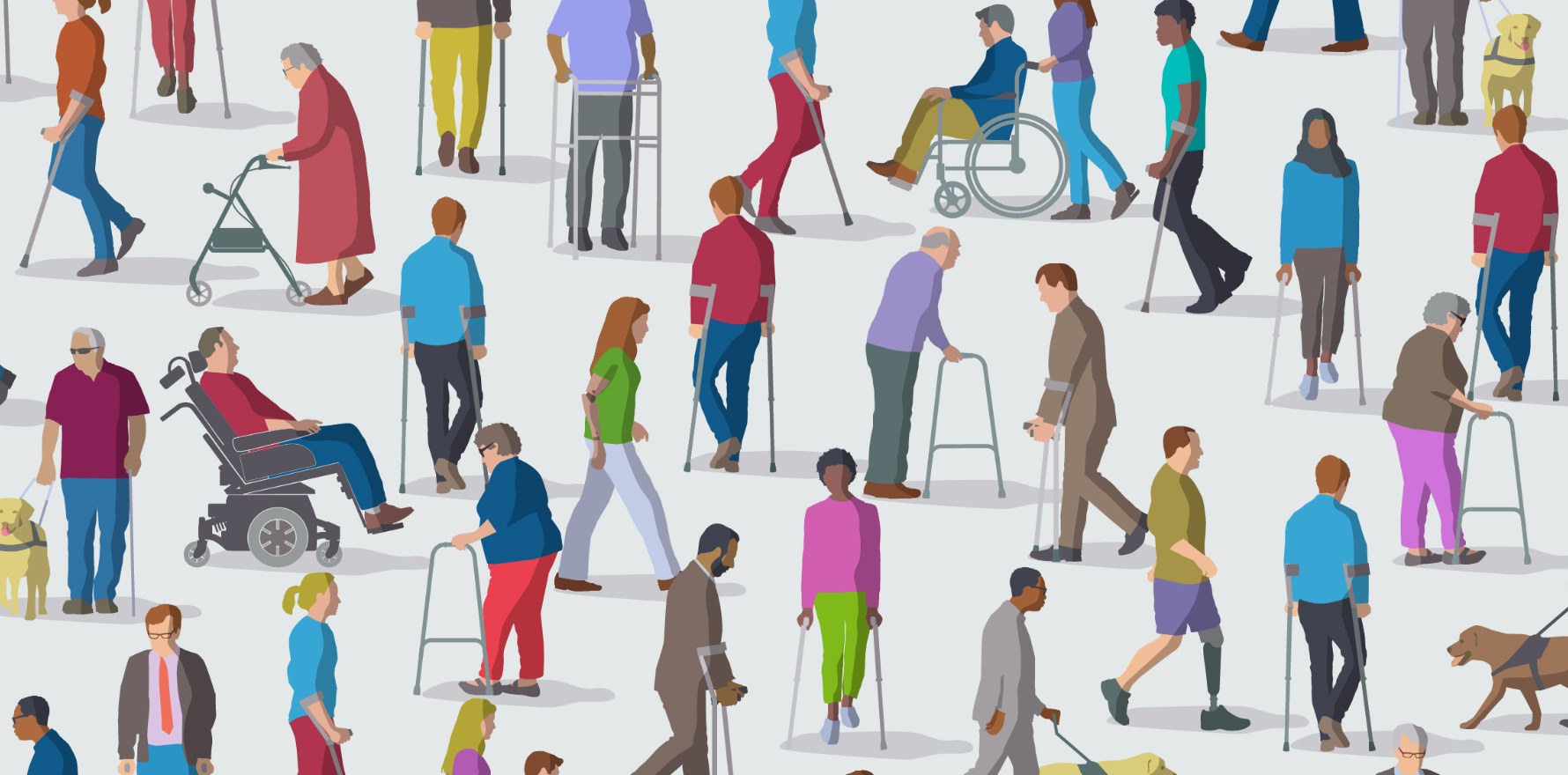The long-awaited Disability Royal Commission report was handed down today, in 13 volumes and with 222 recommendations.
Medical colleges have been taken to task for a lack of specialised disability training content in a recommendation from the Disability Royal Commission.
Handed down this morning after a marathon four-and-a-half-year run, the final report from the Royal Commission into Violence, Abuse, Neglect and Exploitation of People with Disability outlines 222 recommendations that set out a vision for “a more inclusive society that supports the independence of people with a disability”.
The only recommendation of those 222 to specifically mention general practice is 6.29, which asks the RACGP, ACRRM and other medical colleges to develop training content on cognitive disability care and to promote the creation of CPD opportunities focusing on provision of care to people with a cognitive disability.
Recommendation 6.33, which asks state governments to fund specialised health services or multidisciplinary care teams for people with disability, along with training for healthcare workers, also appears likely to apply to general practice.
Recommendation 6.34 raises the possibility of federal funding for a national workforce of “disability health navigators” to support people with cognitive disability and complex health needs to access care.
Commissioners also recommended immediate action to ban restrictive practices like seclusion, sedatives and physical restraints as a way to manage behaviour or as a form of punishment.
“This is really one of those things for the Australian public to be shocked and horrified by, hopefully, and for media to then provide coverage to say to Australians, hey, this is exactly what we’ve been screaming about for the last few decades,” disability sector advocate River Night told The Medical Republic.
“I think a lot of people just don’t quite understand what happens and how the system works.”
The sheer volume of tragic and heartbreaking content would be confronting for many Australians, he said.
Section 8.2 of volume 3 of the final report, which focuses on abuse and neglect in mainstream health services, details stark gaps between the health outcomes of people with disability and the general population.
People with disability are more likely to be overweight, smoke and have hypertension, diabetes or asthma.
Rates of both diabetes and asthma increase among people with “severe” disability, affecting up to 25% of that cohort.
Around 40% of Australians under 65 with coronary heart disease, stroke, diabetes, arthritis, back pain, osteoarthritis, asthma or emphysema have a disability.
The commission estimates that around 3.5% of people with disability experience unfair treatment or discrimination by health staff each year.
Multiple accounts were included from families of people with disability who felt that their loved one was devalued in a healthcare setting in a way that ultimately contributed to their death.
“Ms Kim Creevey told us she believed unconscious bias compromised the care medical staff gave her son Harri, who had an acquired brain injury,” the report read.
“She and her husband feel strongly that when Harri went into hospital for the final time before his death, his care was influenced by his disability, and that they were asked if they wanted to ‘let Harri go’ because of assumptions about the value and quality of his life.”
The four-year commission cost some $599 million and was led by chair Ronald Sackville, who wrote in his foreword that while it might seem to be a “large number” of recommendations, they were needed to reflect “the very many settings and contexts in which violence against, and abuse, neglect and exploitation of, people with disability take place”.
“We have identified numerous policy issues that must be addressed by governments, institutions and the community as a whole if the aspirations expressed in the terms of reference are to be achieved,” he wrote.
Other key recommendations from the report include:
- The introduction of an Australian Disability Rights Act to strengthen protection of the rights of people with disability and meet Australia’s obligations under the Convention on the Rights of Persons with Disabilities.
- A new Australian government portfolio specifically responsible for disability, a new Minister for Disability Inclusion and a new Department of Disability Equality and Inclusion responsible for national leadership on relevant policies and programs.
- A new National Disability Commission as an independent statutory authority.
- More accessible information and communications, and increasing the number, skills and accessibility of interpreters.
- A new framework and national principles for supported decision-making.
- Major reforms to mainstream systems to dismantle barriers that prevent people with disability accessing inclusive education, open employment, and accessible, appropriate and safe housing.
- Addressing the over-representation of people with disability in criminal justice settings and children with disability in youth detention settings.
- Increasing culturally safe disability services and supports for First Nations people with disability and removing barriers to the NDIS in remote and very remote communities.
- Nationally consistent adult safeguarding laws, community visitor schemes, and an independent one-stop shop in each state and territory for reporting complaints, referrals and support.
While most recommendations are directed to the Australian government, some are directed to state and territory governments. Other recommendations are directed to non-government agencies, such as service providers and professional associations responsible for training in disability and related health areas.
The Royal Commission has recommended all Australian governments publish written responses to the final report by 31 March.
As a person living with disability, a full-time carer and father, Mr Night has never shied away from speaking out about what needs to happen to change and reshape the Australian disability sector.
He fired a shot at the federal government for failing to set aside any dedicated funding in this year’s Budget for addressing the commission’s recommendations, even though it knew the report would be tabled in parliament this year.
“That’s a real slap in the face of the disability sector,” he said.
“Because it then says to us, are you going to wait until the next financial year, so June next year, before you put any resources towards actually implement these recommendations?”
He conceded that addressing the recommendations would not come cheaply.
“It’s a lot of money, and a lot of it is systemic change, because the changes need to happen within the systems of government, and those mechanisms of government, they work so slowly,” he said.
Mr Night said he hoped health bureaucrats would take notice of the many examples of time and resource wastage in the disability sector and do something to better protect people with disabilities from service providers who were doing the wrong thing.
“Right now, it’s an honour system – the [NDIS] Commission can only act on complaints if the person has the capacity to make a complaint,” he said.
“And [often] the person helping them make the complaint is the service provider they’re complaining about. They might not have the capacity [to make a complaint] because of an intellectual disability.
“They may be nonverbal, or they may not have access to the internet, or because they have a visual impairment, they can’t make the complaint.
“There’s no way for the NDIS commission to act [for these people] – so it creates a perfect storm for criminals.”
National disability services provider Life Without Barriers has also welcomed the report, saying it “marks a difficult time for people with disability with considerable hardship in both sharing their stories and listening to the experiences of people in the disability community”.
“We offer our respect and appreciation to the many people with disability who provided submissions to the DRC – and to the many people whose stories were not told. Your experiences are equally important,” the group said in a statement.
“We also acknowledge the many advocates and disability representative organisations whose tireless efforts gave rise to the DRC and its necessary focus on experiences of people with disability that must never be acceptable in our society.”
The organisation said it would be taking time to read the report in its entirety so it could understand the recommendations in full.
“Whilst the report marks the end of the journey undertaken by the Disability Royal Commission, it must shape deeper action in our ongoing responsibility to create an inclusive and just society,” it said.
The Greens added its voice to the national response, calling on the Albanese government to commit to chart and fund a clear action plan to achieving disability justice in Australia.
It wants to see the establishment of a federal Minister for Disability and the establishment of a dedicated, ongoing mechanism through which disabled people can continue to report their experiences of abuse and neglect and one that can undertake investigations and have consequences.
It also wants the government to prioritise raising the disability support pension and ending segregation in all settings.
“The conclusion of the Disability Royal Commission marks a significant milestone for disabled people in this country. Reflecting on how far we’ve come together, I’m deeply proud of what we’ve achieved – for disabled people, by disabled people,” said Senator Jordon Steele-John, Australian Greens spokesperson on disability services, health and mental health.
“The disability community has done our bit, now it’s time for federal and state governments to do theirs.
“While the Royal Commission has finished its work, the violence and abuse continues daily. This is why we are calling for urgent action. We will not let abled-bodied politicians put this report and its recommendations on a shelf to collect dust. The violence and abuse continue, the job for the government is just beginning, and the community are united in our call for urgent reform.
“The only acceptable response to the profound injustices uncovered by the Royal Commission is action.”






